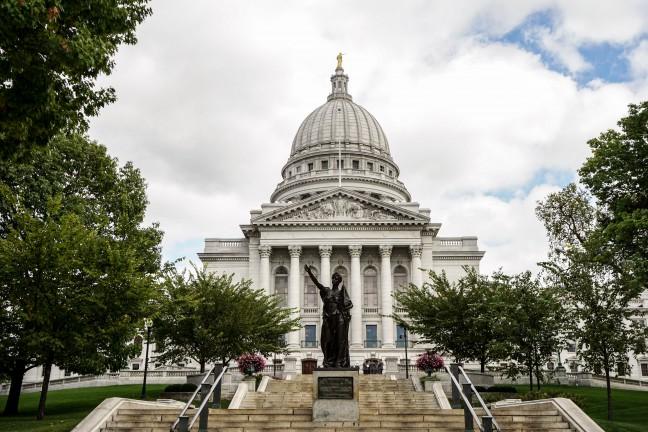After nearly five hours of debate, the Campus Free Speech Act passed through the Wisconsin State Assembly in a vote of 61 to 36 Wednesday evening.
The bill passed with nearly unanimous support from Republicans. State Rep. Bob Gannon, R-West Bend, was the only Republican to join all Democrats opposing the bill.
The GOP-introduced bill is intended to protect free speech on University of Wisconsin System schools and allow guest speakers who come to campus to speak without disruption.
Rep. Dave Murphy, R-Greenville, called the disruption some speakers face a “theft of another’s person’s right to be heard.”
Calling the bill “too broad,” State Rep. Chris Taylor, D-Madison, brought up how the bill never defines the term “interfering with,” which is a “big problem.”
“What does interfere with mean? Is it calling out? Is it saying ‘no, I don’t agree with you’? If you do that twice, you could be suspended, and if you do it three times, you could be expelled,” Taylor said.
It's getting late. @PeterWBarca just said "this is bullshit" while debating campus free speech rights bill
— Scott Bauer (@sbauerAP) June 22, 2017
According to the bill, students who interfere with the expressive rights of others may be suspended or expelled. This would be the only nonacademic activity that would result in mandatory suspension or expulsion.
Both students and nonstudents would be able to report a student to the Board of Regents for violating the policies. The university is required to investigate every complaint.
Both parties emphasized the importance of free speech, but disagreed on whether or not the bill actually helps or hinders free speech.
Democrats argued that instead of protecting free speech on campus, the bill limits it. Rep. Gary Hebl, D-Sun Prairie, said the bill prioritizes free speech rights of some people over others.
In the same vein, State Rep. Cory Mason, D-Racine, said the bill “gags” the free speech rights of people who would dissent with an opposing view.
GOP Rep. Bob Gannon says he has concerns about UW free speech bill, says he's worried it could silence speech by conservative students.
— Jason Stein (@jasonmdstein) June 21, 2017
But, State Rep. John Spiros, R-Marshfield, said the bill has nothing to do with suppressing freedom of speech. Instead, it’s saying we should all have a freedom to speak.
Echoing a similar sentiment, Assembly Speaker Robin Vos, R-Rochester, said this bill will allow all the freedom to speak their minds, regardless of their viewpoints.
“On far too many college campuses, different points of view are not even allowed,” Vos said. “We are going to send a clear message that the entire population, but especially those in our universities, need to hear loud and clear — free speech is valued and free speech will remain on our college campuses.
Democrats also argued the bill will play a role on how faculty and students act, despite Republicans saying it will stay out of the classroom.
Taylor said the bill will “chill robust discussions and provocative questions” because students won’t know what they can and can’t do.
“This bill plays on students fears, and it will have a chilling effect on a student’s ability to engage, listen or react to someone who may make an outlandish statement,” Hebl said.
The bill also passed with an amendment that would abolish the Council on Free Expression, which would have been a 15-person group that would report annually to the Legislature. Instead, that responsibility will now be left to the Board of Regents.
The bill now heads to the Senate.


